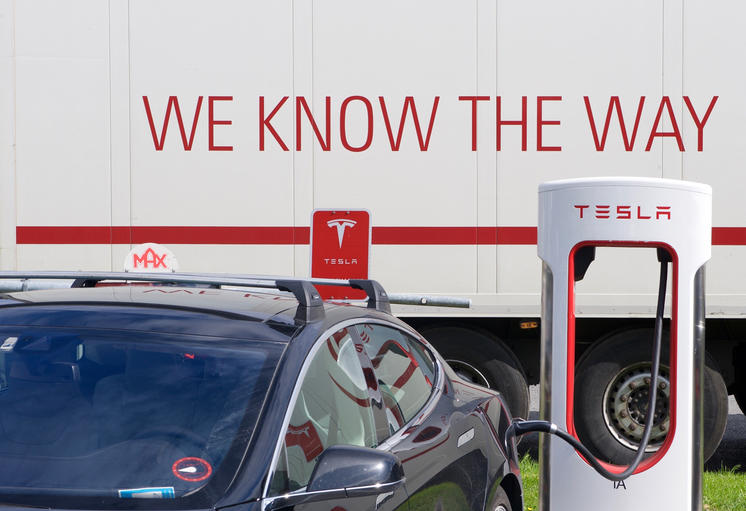Sustainable and Responsible Investing
“So, Tesla, sustainable or not sustainable?!”

Sustainable and Responsible Investing


“Disruptive” companies such as Amazon or Tesla are perfect examples of this lack of consensus. Let us summarise the arguments on both sides. Tesla’s positive assessments will focus on the E of ESG. They value the positive environmental impacts of the electrification of its cars, which dramatically reduces carbon emissions*. On the other hand, without overshadowing the negative environmental impacts –such as the intensive use of scarce materials for the batteries–, negative assessments criticise the S and G pillars: difficult governance, a lack of transparency in ESG reporting, and very poor social performance (employee working conditions, trade union rights, etc.) punctuated by major controversies.
* On average, the Tesla Model 3 emits 91 grams of CO2 per kilometre, 65% less than an equivalent gasoline-powered German sedan.
| Rating agency | Tesla rating (August 2021) | Rating agency’s ESG assessment | Industry positioning |
|---|---|---|---|
| Sustainalytics | High Risk | Significant ESG risks and management considered average | Among the poorest ESG scores |
| MSCI | Average (upper category) | ESG Leader in the environment; but some problems in the social domain | Among the highest ESG scores |
| ISS ESG | Average | Tesla generates mainly positive impacts | Industry leader |
| S&P DJI ESG Score | Laggard | Poor management of ESG issues except for their products’ carbon impact | Industry laggard |
| Inrate | Average | Tesla generates mainly positive impacts | Industry leader |
Behind these sometimes significant differences, we can see various methodological approaches. While some agencies choose to measure the impacts of the products and services on the environment and society (here rather positive for Tesla), others focus on the company’s sustainability management and rate its Corporate Social Responsibility (CSR) strategy, programs in place, standards, etc. Weightings on the E, S or G pillars may also vary.
The debate on these diverging analyses is taking place in a context where ESG ratings are gaining considerable importance as an investment decision-making tool. It should be noted that more than 3,000 financial organisations, representing more than USD 103 trillion, are signatories to the United Nations Principles for Responsible Investment (PRI) and are committed to integrating ESG criteria into their management. The demand for ESG data and ratings is therefore growing in a market that now has around 125 providers specialising in extra-financial data. ESG data is the raw material needed to develop socially responsible investment (SRI) approaches, such as exclusion, best-in-class, impact and thematic. As a result, some financial players are denouncing the “confusion” caused by these divergences in ESG ratings and are calling for more standardisation in the way an issuer, company or government’s ESG performance is assessed, as is the case with financial credit ratings.
As we have learned from the Tesla case, the reasons for the discrepancies in the final rating are mainly methodological*. It is up to investors, both institutional and private, to understand how ESG data providers work and which methodologies underpinning ESG ratings are likely to suit their ESG values and convictions best. In an impact fund, for example, managers will look at the positive and negative contributions of the products and services offered by the fund’s holdings rather than at how traditional sustainability issues are managed (Tesla appears to be an interesting stock here). For an investor who is sensitive to material extra-financial risks, on the other hand, responsible management of issues and controversies will be preferred (Tesla will not easily qualify here). Ideally, ESG assessments should be produced by the managers themselves, based on primary data from ESG providers, derived from internal research.
As for the question “Tesla, sustainable or not sustainable?”, a non-committal answer would seem to be in order: it depends on your ESG investment objectives and your convictions!
* See this study on the subject “Aggregate Confusion: The Divergence of ESG Ratings,” MIT Sloans School Working Paper 5822-19: https://mitsloan.mit.edu/sustainability-initiative/aggregate-confusion-project.
This publication is prepared by Mirabaud. It is not intended to be distributed, disseminated, published or used in any jurisdiction where such distribution, dissemination, publication or use would be prohibited. It is not intended for people or entities to whom it would be illegal to send such publication.
Read more
Mirabaud Series
6 articles
Continue to
